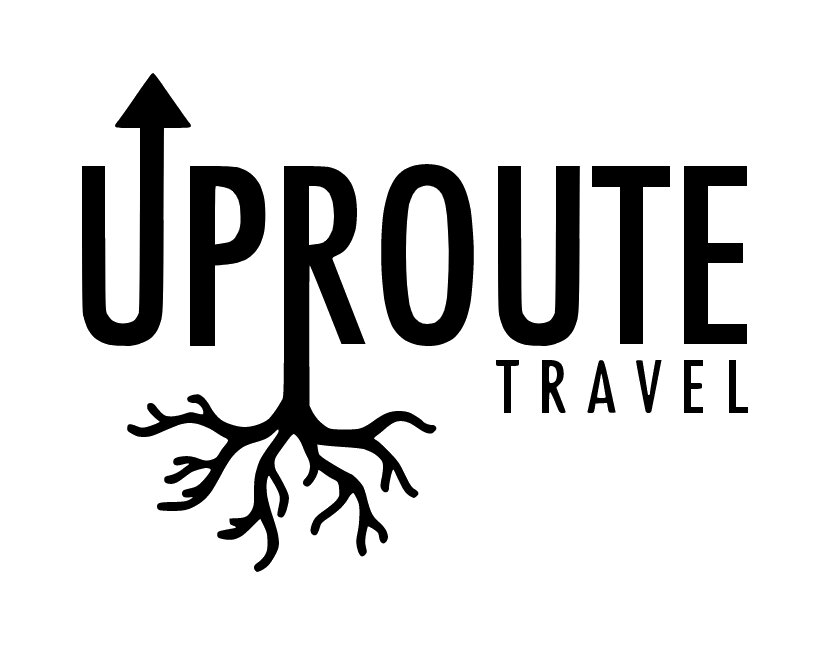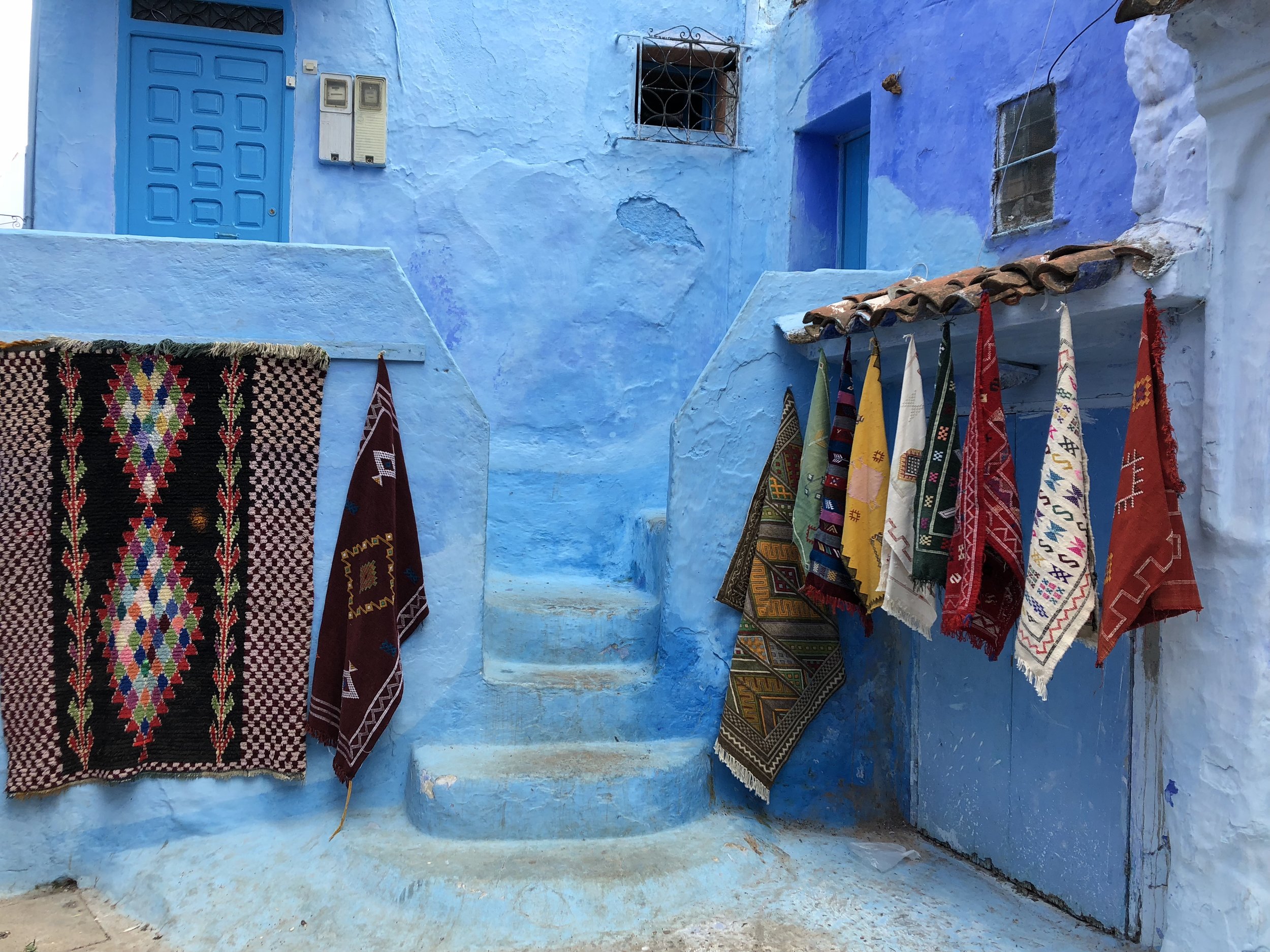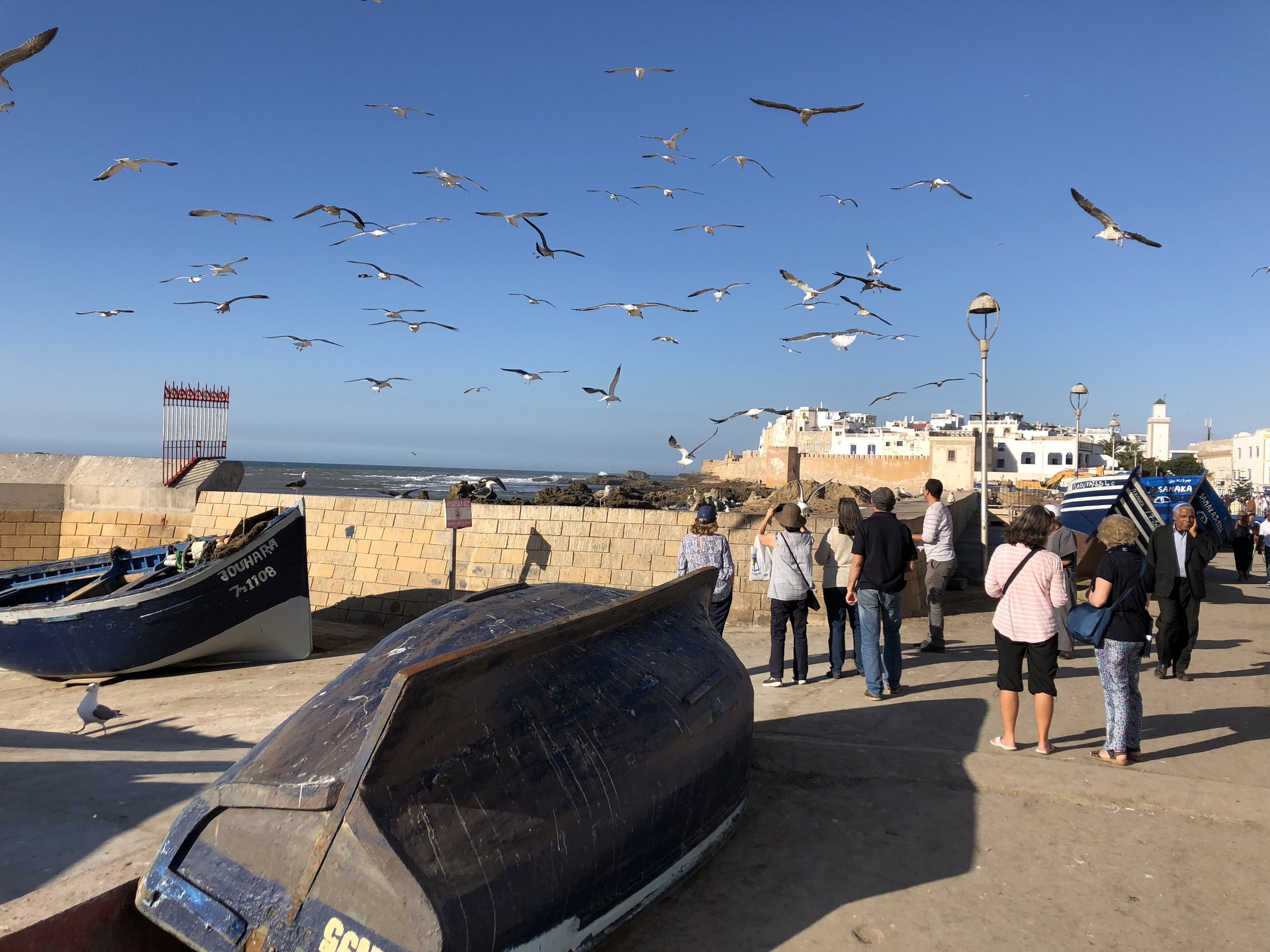MOROCCO
Growing up in the United States, I was incorrectly educated on Africa as a whole. Africa was always talked about as one large “country” made up of exotic wildlife, immense poverty, and the Great Pyramids of Giza. When I made the decision to fly to Morocco, I went hoping to dispel this. Upon landing in Casablanca, I quickly realized that this nation was unlike any other place I had been (and it has inspired an urge to visit many more countries within Africa)! Home to a portion of the Sahara Desert (which in its entirety is the size of the United States), Morocco is a fabulous mix of different cultures - full of bustling bazaars, captivating colors, and mystifying mosques.
Updated COVID-19 Travel Information:
Currency:
The official currency of Morocco is the Moroccan Dirham (MAD)
$1 USD = 9 MAD
Pricing for Leisure Travelers:
Average Hotel Expenses = 675-810 MAD/Night ($75-$90 USD/Night)
Average Riad Expenses = 360-495 MAD/Night ($40-$55 USD/Night)
Average Food/Drink Expenses = 180-315 MAD/Day ($20-$35 USD/Day)
Pricing for Backpackers:
Average Hostel Expenses = 62-152 MAD/Night ($7-$17 USD/Night)
Average Food/Drink Expenses = 80-170 MAD/Day ($9-$19 USD/Day)
Communication:
Arabic and French are widely spoken throughout Morocco. If you have time to learn basic phrases in either language (numbers, salutations, directions, etc.), it would go a long way. While, there is some English spoken, as well as Spanish in Northern Morocco, Arabic and French are the best ways to communicate with locals.
Transportation:
Bus: This is the easiest way to travel through Morocco (via CTM). Buses come in and out of all major cities - most of the time multiple times per day. CTM does not run to Merzouga but Supratours (operated via ONCF) does!
Train: I didn’t travel via train because it’s pricier than the bus but I have heard that traveling by train is also a good option (it will save you some time).
Taxi: Traveling by taxi is the most direct and most efficient but also the most expensive. There are two main types of taxis in Morocco - petit taxis and grand taxis (both of which are safe and reliable). The name does not refer to the size of the taxi. Petit taxis must stay inside the city limits. Grand taxis are taxis that leave the city and will take you wherever you wish.
Miscellaneous:
Although Muslims are generally forbidden from drinking alcohol, that doesn’t mean tourists have to go without it. In fact, a fair amount of Moroccans do indeed drink - but it is in the comfort of their homes. If you go searching for alcohol, it won’t be the easiest to find (but it is definitely possible). If you are able to find a restaurant, bar, or grocery store with alcohol, it will be highly taxed and therefore very expensive. That said, if you do find it, absolutely do not drink in public. Not only is it illegal, but I imagine it would be highly offensive to locals.
Outside of hotels and hostels, there is another form of accommodation popular among tourists in Morocco. Known as riads, these buildings - now turned into guesthouses - used to be owned by society’s wealthiest families. Similar to bed and breakfasts, riads typically have between 5-10 rooms with an outdoor courtyard for all guests to share. These courtyards generally contain a combination of fountains and plants in addition to ornate tile work and intricate architecture. These peaceful, serene common areas serve as respite from Morocco’s bustling bazaars. I highly recommend staying in at least one during your travels!







